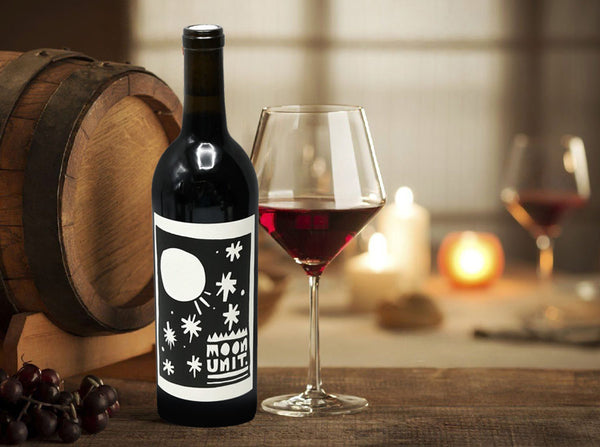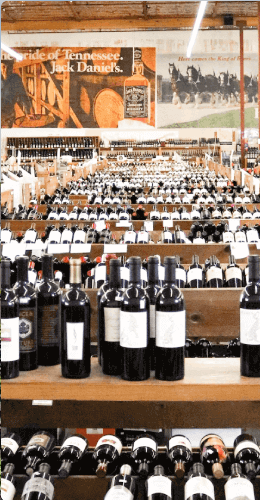What’s the Difference between Natural Wine and “Wine”?

The Slow Food Movement started in Italy in the late 1980s. McDonald’s opening in the Piazza di Spagna in Rome spurred a reaction to the rapid growth of fast food establishments in Western Europe, bastions of traditional food culture. The Natural Wine (Vin Natural) movement has slightly deeper roots, beginning in Beaujolais, France, in the 1970s. Both were reactions to highly commercial, standardized, and in some cases industrial production of what we put in our mouths in the late 20th century. When you order wine online, do you look for natural wine? Both movements linked in organic, sometimes biodynamic, cultivation for the base products: restaurant food and wine. One famous natural wine advocate, Corrado Dottori, said, “Natural wine is not a ‘type of wine’. It is a counter-culture movement. Natural wine is not ‘a method’.”
Madeline Puckette at Wine Folly says: “Of course, there is no official or regulated definition of natural wine,” which is true to an extent, especially in the New World, but actually in 2020, in response to lobbying, the French government established an official certification for “vin méthode nature,” which sparked a lot of controversy in the European Union. It technically established particular methods of winemaking, and not a separate category of wine.
What is Natural Wine?
Natural wine is wine, that is the result of the fermentation of grape juice by yeast. In the natural wine process, however, no (or very minimal) additives are allowed, and the grapes must have been organically cultivated. The French regulation also bans certain processes such as inverse osmosis, filtration, stabilization, thermovinification, flash pasteurization, and cross-flow clarification. Sulfite use in natural wine is controversial. In France, wine labelled as natural wine can have up to 30 mg/L of sulfur dioxide, added after fermentation. If no sulfites are added sulfites it may be labelled vin méthode nature sans sulfites ajoutés (natural method without added sulfites).
As Dr. Jamie Goode, an expert in “green” wines says, however, “Some yeast strains will produce 10 mg/L or more before the wine is bottled.” Sulfites are produced “naturally” during winemaking. “Despite occurring naturally, these wines would need to be labelled as containing sulfites. It’s also not rare for yeasts to produce more than 30 mg/L of sulfur dioxide, which means that the wine cannot be certified,” says Jamie.
How Else Does Natural Winemaking Differ?
In addition, natural wine is generally only made with native yeasts from the environment. Bacteria are not removed by those processes listed above and nothing is done to alter acidity levels in the finished wine. In other words, it’s wine resulting from zero to little intervention, just letting nature takes its course in the winery. Most conventional wine today is not made that way. The orange wine trend is linked to that for natural wine. Of course, humans still make the wine, including crushing the grapes, separating the must, putting it in fermentation tanks, controlling temperature, moving the juice and wine around, bottling it, etc.
Is Natural Wine the Same as Organic Wine?
In most of the world, Natural Wine is not regulated. It can also be expensive. This has caused some winemakers to use the phrase indiscriminately or without justification, i.e., green washing. Generally, however, it’s accepted that natural wine must be made from certified organic grapes that are hand-picked. Under that definition, Natural Wine becomes a sub-category of wine made from organically-cultivated grapes, and possibly certified organic wine.
I would be suspect of any “natural wine” that does not carry organic certification from a government-regulated organization.
Is Natural Wine Better for You?
The New York Times recently investigated health claims about natural wine. Author Jesse Hirsch interviewed scientists expert in the field, examining the links between wine that is less industrial and “cleaner” than other wines and either fewer negative health effects or positive ones. The claims included that natural wine has fewer pesticides, causes less severe hangovers, contains fewer sulfites, and improves gut health, or intestinal flora, like yoghurt. The article concluded that pesticides was a non-issue, since all wine cannot contain anything other than miniscule levels of pesticides. I would say, stick with wine made from certified organic grapes. Regarding the hangovers, there’s no proof that natural wine differs from other wine. The conclusion regarding sulfites was that anyone other than the two to three percent of the population with sulfite intolerance, there’s going to be no difference if you drink natural wine. The claim that sulfites in wine cause headaches is dubious in the first place. Finally for gut health, no difference exists in terms of health results for natural wine versus “non-natural wine.”
My conclusion is that Corrado Dottori was right, natural wine is a movement, and a counter-cultural one. This does not means its bad, though I dislike the name. Calling a wine “natural wine” immediately suggests that other wines are somehow synthetic or un-natural. I totally agree with the Slow Food Movement’s impetus against fast food. I agree with natural winemaking, but all winegrowing involves human intervention. As a reaction against a lack of transparency in wine labelling, it’s great. We should know what our wines contain and generally how they were made. Highly industrial processes can affect wine quality, and I’d prefer to drink wine made without them. However, just “letting things go” in the winery can also produce unstable, turned, or, frankly, bad wine. Buy local wines from small producers, if you can, and ask questions about winegrowers and their methods.
Bottle Barn has natural wines and you can locate them easily when you buy wine online through the website. The friendly staff are knowledgeable about natural wine and the winemakers, so don’t be afraid to ask. Did you like learning about natural wine? Check out our other wine information articles!
By Charlie Leary


















Leave a comment